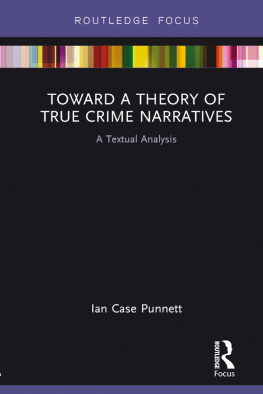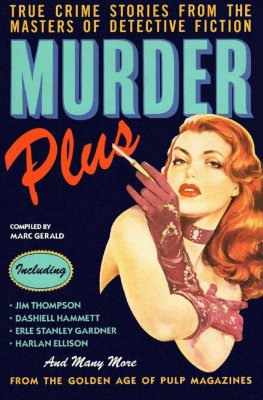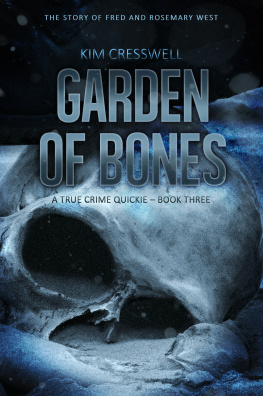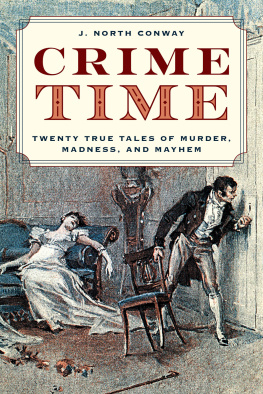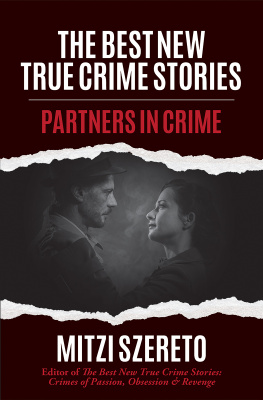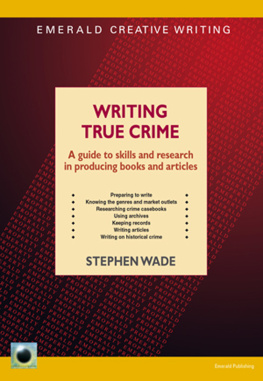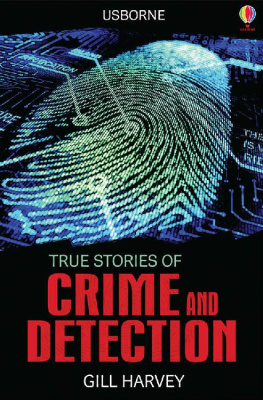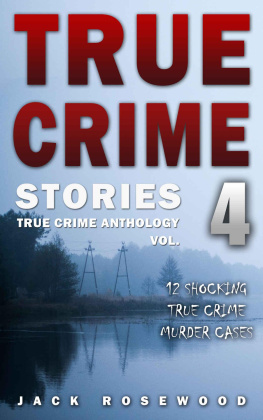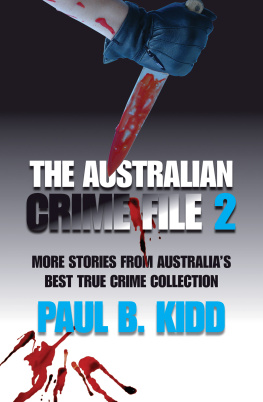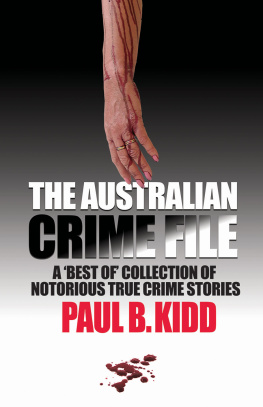Toward a Theory of True Crime Narratives
With this book, Dr. Ian Punnett has staked out new and important territory in the study of true crime. This is essential reading for anybody interested in how and why true crime remains compelling to worldwide readers and audiences.
Jean Murley, Queensborough Community College, CUNY, USA
Toward a Theory of True Crime Narratives vivifies how nonfiction murder stories are told, what role they play in society, and in the form of true crime why they remain enduringly popular internationally on every platform. This book establishes for the first time the actual lineor dotted linebetween mainstream journalism and the multimedia phenomena of true crime. Presenting a stable definition of what isand what is nottrue crime will either challenge or justify Truman Capotes claims regarding the creation of a new journalism with In Cold Blood, and accordingly expose the reluctance of the promoters of NPRs Serial, HBOs The Jinx, and Netflixs Making a Murderer to refer to their products as such. This research codifies true crime texts of various types on multiple platformsradio, television, print, digital, and filmto reveal the defining characteristics of the genre.
Ian Case Punnett is a professor of multimedia journalism who came back to graduate school after a successful decades-long career in commercial radio/television/print/digital media. Other books include A Black Night for the Blue Grass Belle (2016) and How to Pray When Youre Pissed at God (2013).
Routledge Focus on Journalism Studies
Metro Newspaper Journalists in China
The Aspiration-Frustration-Reconciliation Framework
Zhaoxi Liu
Toward a Theory of True Crime Narratives
A Textual Analysis
Ian Case Punnett
Toward a Theory of True Crime Narratives
A Textual Analysis
Ian Case Punnett

First published 2018
by Routledge
711 Third Avenue, New York, NY 10017
and by Routledge
2 Park Square, Milton Park, Abingdon, Oxon OX14 4RN
Routledge is an imprint of the Taylor & Francis Group, an informa business
2018 Taylor & Francis
The right of Ian Case Punnett to be identified as author of this work has been asserted by him in accordance with sections 77 and 78 of the Copyright, Designs and Patents Act 1988.
All rights reserved. No part of this book may be reprinted or reproduced or utilised in any form or by any electronic, mechanical, or other means, now known or hereafter invented, including photocopying and recording, or in any information storage or retrieval system, without permission in writing from the publishers.
Trademark notice: Product or corporate names may be trademarks or registered trademarks, and are used only for identification and explanation without intent to infringe.
Library of Congress Cataloging-in-Publication Data
A catalog record for this book has been requested
ISBN: 978-0-8153-8570-7 (hbk)
ISBN: 978-1-351-18048-1 (ebk)
Typeset in Times New Roman
by Apex CoVantage, LLC
For my wife, Margery. Someday the sensational true crime story must be told of how you stole my heart.
Contents
The author would like to thank Team Punnett at the Walter Cronkite School of Journalism and Mass Communication at Arizona State University: Christopher Callahan, Dennis Russell, Bill Silcock, Joe Russomanno, Leslie-Jean Thornton, Marianne Barrett, Tim McGuire, John Dille, and Kristy Holtfreter from the School of Criminology and Criminal Justice for all the guidance, invigorating conversation, and friendship in the formation of this text.
A monograph of this work is only possible because of Felisa Salvago-Keyes and Christina Kowalski at Taylor & Francis, Patterson Smith for his help in the artwork, and Filson Historical Society and John Wareham at the Minneapolis Star Tribune for tracking down and providing several key photographs.
The mass media genre known as true crime is experiencing international multi-platform success. According to Apple, Serial, the 12-part podcast investigation of a 1999 murder on NPRs This American Life website, reached the five million downloads mark faster than any podcast in history (Dredge, 2014, para. 3). In 2017, as Siobhan A. McHugh of the University of Wollongong, Australia, noted, the S-Town podcast had ten million downloads in the first four days, far surpassing even Serial. It has been rapturously reviewed by The Atlantic, The New York Times and respected podcasting critic Nicholas Quah in Vulture (McHugh, 2012, para. 2). Critical praise for Serial was also effusive. Although The Telegraph called it badly written (Simons, 2014, para. 12), after The Guardian called Serial a truly remarkable piece of journalism (Simons, 2014, para. 8), Dwight Gardner of The New York Times admitted that, at its best, Serial had made many of us drive a bit wobblier as we experienced the occasional tingle of campfire-narration awe (Gardner, 2014, para. 2). Few scholars accurately identified that the podcasts greatest appeal came from how the show fit so squarely in true crime conventions (Durrani, Gotkin, & Laughlin, 2015, p. 2).
The same can be said for Andrew Jareckis The Jinx on HBO (Lawson, 2015, para. 4). His six-part serial exposed the murderous trail of billionaire Robert Durst, a reclusive man accused of killing three people over 30 years. With a Hollywood budget and high-television production values, including hours of crime scene reenactments, Jarecki narrated much of his sojourn as the cat to Dursts mousean interplay that ended with Durst being caught on camera seemingly confessing to the three murders, one of which he had been tried for, but never convicted.
Aired within months of each other, Serial set the stage for a new trial for a man who had been convicted, and The Jinx forced a new murder indictment for a man who had been found innocent. Serial won two Peabody Awards for excellence in radio, the first ever for a podcast; The Jinx won two Emmy Awards for best documentary. Serial and The Jinx were both nonfiction murder narratives based on actual but non-contemporaneous news events, packaged and sold as entertainment; yet neither was identified as a true crime text.
Similarly, Truman Capote went to his grave insisting that his arguably most famous work, In Cold Blood, was new journalism or a nonfiction novel rather than true crime. According to Browder (2010), Whether or not Capote invented something called the nonfiction novel, he ushered in the serious, extensive nonfiction treatment of murder (p. 205). Because In Cold Blood made reading about gory crimein this case, the random murder of a farm family in Holcomb, Kansasrespectable, it allowed daily newspapers, Sunday supplements, and news magazines to write in a true crime stylewith all of its sensational detailunder the newly legitimated banner of new journalism (Browder, 2010, p. 205). Pulitzer Prize-winner Madeleine Blais, a journalism professor at the University of Massachusetts, credited Capote as being the first writer who turned reality into a kind of fiction (Jensen, 2005, p. 1).
Making a Murderer, a ten-episode Netflix documentary series that brought international attention to the obscure case of Wisconsinite Steven Avery (Gray, 2016, para. 5), engendered some of the same criticism levied at

